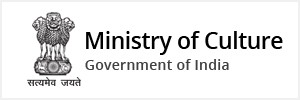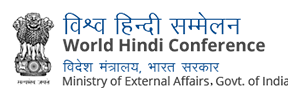At a time when the virtues of ancient Indian science were making headlines, groups of young children from Tripura to Kerala gathered in the national Capital to try their hand at an unusual form of science communication - drama.
Sitting through the staging of as many as 10 selected science plays from different parts of the country at the National Science Centre, I realised that theatre could really be a potent medium of communicating scientific concepts and information to the general public, particularly children.
These plays help demystify science by presenting scientific information in easily digestible language.
All the plays, staged in different Indian languages, reflected local or regional problems in the backdrop of scientific knowledge.
For instance, children from Ernakulam highlighted the problem of pesticide residues in fruits and vegetables, reflecting the controversy around ‘endosulfan’ in Kerala. The kids are actually engaged in a school project on organic farming and used the play to convey its benefits.
The play by children from Akola in Maharashtra focused on recycling of waste, while another one by Goa kids depicted superstitious beliefs of rural people about big projects.
Other plays put the spotlight on pollution, global warming, sustainable development and water harvesting, conveying scientific messages through stories, lyrics and even humour.
Theatre personalities have shown a keen interest in the genre of science-drama and have conducted workshops for children to hone their skills, according to N. Ramdas Iyer, who put together the show.
For a country with a billion-plus population, India has very few organisations engaged in science popularisation activities. The Kolkata-based National Council of Science Museums, which organised the science drama festival, is at the forefront of science popularisation among children. It runs 25 science centres and museums, each with several regional centres throughout the country.
Almost five million children visit these centres every year, and a string of innovation labs for children are also on the anvil.
“Diffusing a scientific way of thinking to people is critical in these times when superstition and misinformation threaten gullible people”, says G S Rautela, director general of the council.
Science drama, he says, can engage several senses of viewers at the same time just like interactive exhibits in science centres. The science drama festival reminded me of “Dance Your Ph.D” contest organised by the American Association for Advancement of Science (AAAS), which challenges scientists to explain their doctoral theses through dance.
Last year’s contest was won by Uma Nagendra, a plant biologist from the University of Georgia, who is also a trapeze artist. Through her dance, she depicted the impact of tornadoes on forest soils – the subject of her research.
Hopefully we will see an Indian version of such a contest. It may turn out to be a difficult task because doctoral topics in science streams are often too complicated and narrow in focus. Most of our scientists and doctoral students are also bad at communicating their work.
Still, it may be worthwhile to attempt a contest similar to “Dance Your Ph.D” in India.












